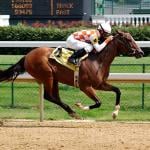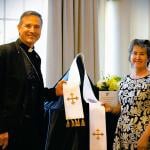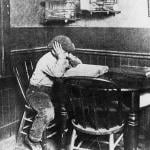While we’ve been distracted by the the communion controversy down in Washington, some interesting news on a related topic broke overseas:
Archbishop Vincent Nichols has reaffirmed the Diocese of Westminster’s pastoral provision for gay Catholics following accusations that it provides a platform for dissent from Church teaching.
In a statement issued today, the Archbishop of Westminster “reaffirmed the intention and purpose” of the pastoral provision for Catholics at the Church of Our Lady of the Assumption, Warwick Street.
The pastoral provision, known colloquially as the “Soho Masses”, has attracted criticism since it was established in February 2007 by the archbishop’s predecessor, Cardinal Cormac Murphy-O’Connor. Earlier this month a short video of the bidding prayers at one of the Masses was posted on YouTube. Critics claimed that the prayers challenged Catholic teaching on homosexuality – a claim denied by the organisers.
Archbishop Nichols said: “As we approach the fifth anniversary of the establishment of a pastoral provision for Catholics of a same-sex orientation at the Church of Our Lady of the Assumption, I would like reaffirm the intention and purpose of this outreach.
“That intention and purpose were clearly set out in the statement issued by the Diocese of Westminster in 2007 when the provision was started under the guidance of Cardinal Cormac Murphy O’Connor.
“Furthermore it is important to recall and study again the direction and guidance set out by Cardinal Hume in 1997.
“In order to appreciate the intention and purpose of this provision a close reading of these two documents is required.
“These documents outline three essential foundations: the dignity of all persons created by God, the moral principles concerning chastity and the Church’s teaching on sexual activity, and the pastoral care of Catholics who are of same-sex orientation. All who participate in the Mass are called to live the church’s teaching through an ongoing conversion of life.
“At the present time consideration is being given to the circumstances in which these Masses are celebrated to ensure that their purpose is respected and that they are not occasions for confusion or opposition concerning the positive teaching of the Church on the meaning of human sexuality or the moral imperatives that flow from that teaching, which we uphold and towards which we all strive.”
The archbishop’s statement ended with a note which said: “The language used by the Catechism of the Catholic Church and other Church documents is the term ‘homosexual’. I am also conscious that the abbreviation LGBT is preferred by many as a collective identification. Whatever language is used, it is worth bearing in mind that the Church ‘refuses to consider the person as a “heterosexual” or a “homosexual” and insists that every person has a fundamental identity: the creature of God and, by grace, his child and heir to eternal life’ (Congregation for the Doctrine of the Faith, On the Pastoral Care of Homosexual Persons, par 16).”
That prompted this response from someone who has been involved with the Masses:
These Masses are widely misrepresented by our critics. They are emphatically not a place for campaigns against church teaching, nor are the refreshment times occasions for sexual hook-ups. While the question of celibacy is not directly discussed or even raised, there is a tacit understanding of the Church’s teaching, including its teaching on conscience. Our Masses are really much like any other – just better done, in the quality of the liturgy, congregational participation, homilies, and refreshment time afterwards, where discussions are livelier, and the welcome warmer, than in any other parish I have ever known.
Outside Mass, we sometimes offer small group discussions for Lent or Advent, days of recollection and retreats, just as other parishes do – but with a rather stronger percentage of our people participating than in conventional parishes.
What particularly characterises our community is the deep commitment of so many of us. Some of us travel extraordinary distances to attend, in addition to participation in our local parishes.
For many, the experience of regular attendance deepens and strengthens our faith. Many who have not previously attended local parishes begin to do so, some who have done, begin to participate more actively. Indirectly, our Mass is strengthening other parishes too. We are reaching many people who have been estranged from the Church, drawing them back into it. In doing so, we are delivering an important service to them and the wider Church community.
I am deeply grateful to Archbishop Nichols for this most welcome assurance that they are to continue, as I am for his support in the past – and his reminder in a BBC interview in 2010 to critics that it is not up to any one of us to judge the interior state of another’s conscience.
Is it any wonder Barbara Johnson thought it was just fine to go to communion at her mother’s funeral?















